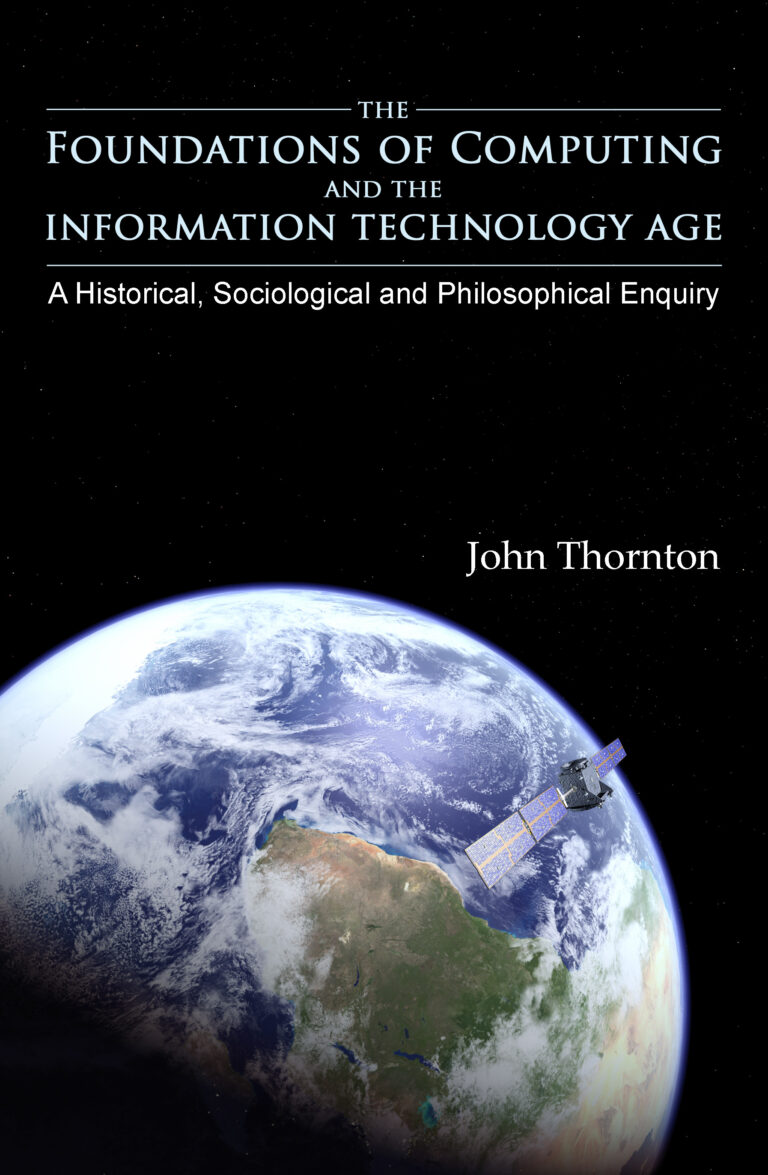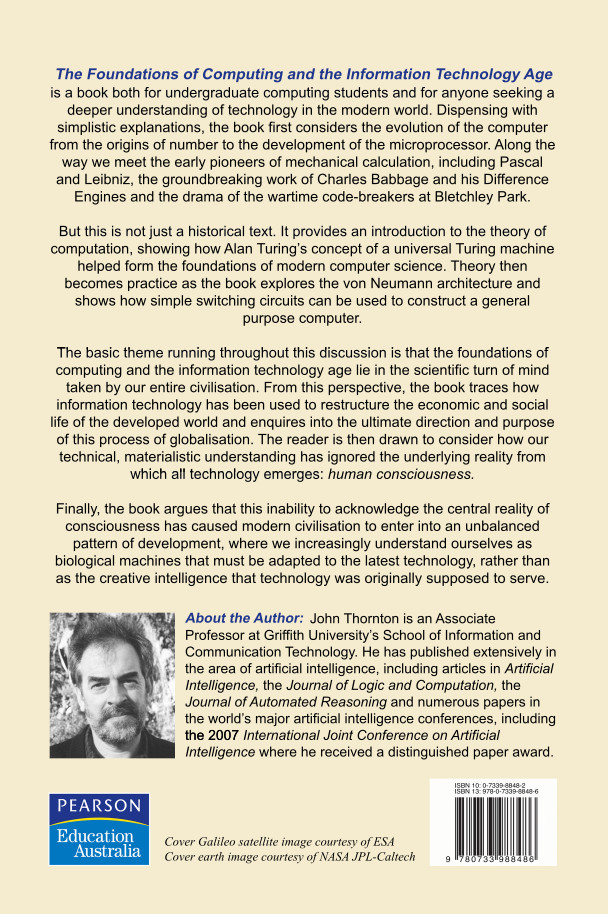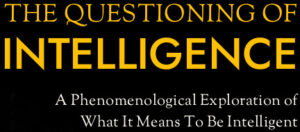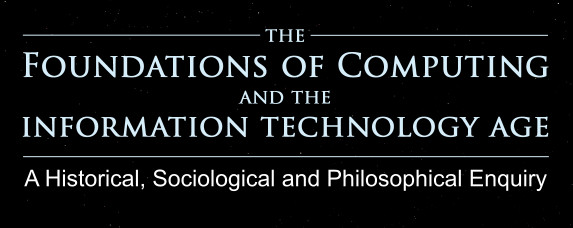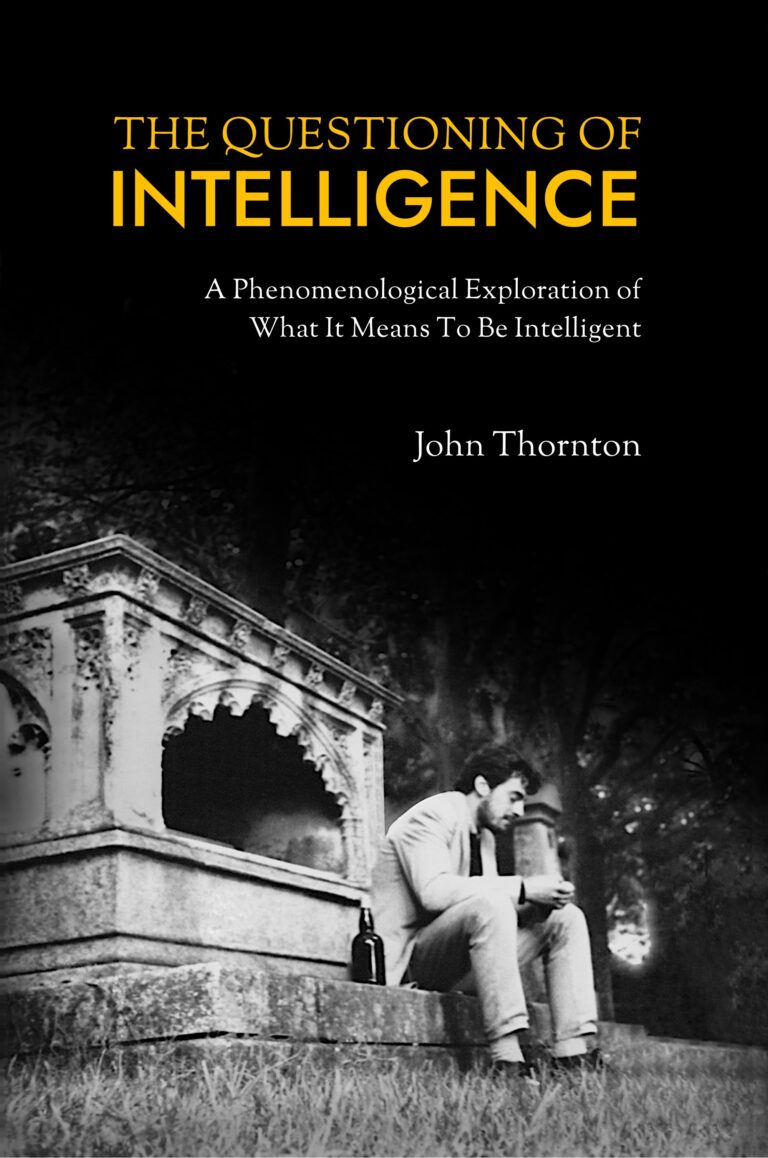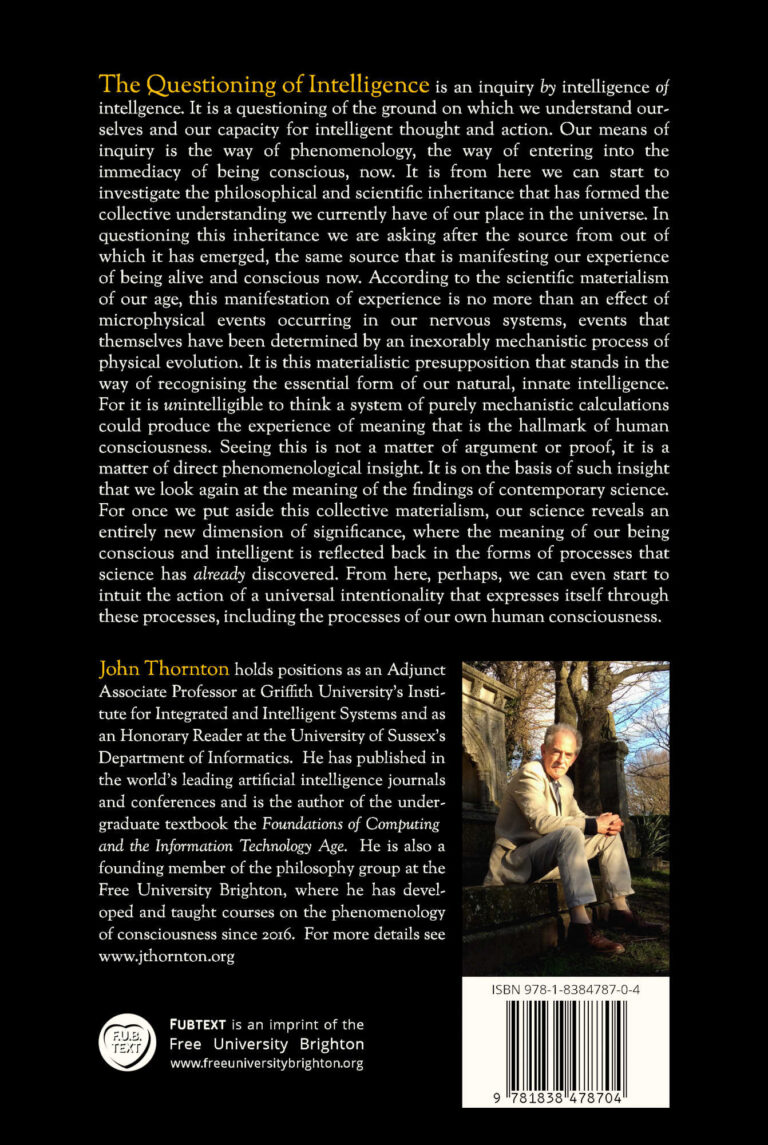The Books Page
Blurb. Covers. Previews.
Select From
The Questioning of Intelligence (ISBN 978-1-8384787-0-4) was published on 3rd September 2021. It will be launched with a book signing at the Exeter Street Hall in Brighton BN1 5PG on Sunday 19th September from 2pm to 4pm. For more details follow this link. This is the first book publication in the Free University Brighton Philosophy series, and is published by FUBText (an imprint of the Free University Brighton). There is a Free University Brighton philosophy course based on the book, starting Saturday 25th September from 2pm to 6pm, also at the Exeter Street Hall. It will be taught in three parts over three terms, with each part consisting of ten meetings. For more details and to enrol, please use the contact email at the top of the page.
From the Back Cover: The Questioning of Intelligence is an inquiry by intelligence of intellgence. It is a questioning of the ground on which we understand ourselves and our capacity for intelligent thought and action. Our means of inquiry is the way of phenomenology, the way of entering into the immediacy of being conscious, now. It is from here we can start to investigate the philosophical and scientific inheritance that has formed the collective understanding we currently have of our place in the universe. In questioning this inheritance we are asking after the source from out of which it has emerged, the same source that is manifesting our experience of being alive and conscious now. According to the scientific materialism of our age, this manifestation of experience is no more than an effect of microphysical events occurring in our nervous systems, events that themselves have been determined by an inexorably mechanistic process of physical evolution. It is this materialistic presupposition that stands in the way of recognising the essential form of our natural, innate intelligence. For it is unintelligible to think a system of purely mechanistic calculations could produce the experience of meaning that is the hallmark of human consciousness. Seeing this is not a matter of argument or proof, it is a matter of direct phenomenological insight. It is on the basis of such insight that we look again at the meaning of the findings of contemporary science. For once we put aside this collective materialism, our science reveals an entirely new dimension of significance, where the meaning of our being conscious and intelligent is reflected back in the forms of processes that science has already discovered. From here, perhaps, we can even start to intuit the action of a universal intentionality that expresses itself through these processes, including the processes of our own human consciousness.
Intelligence Copyright
Intelligence Contents
Intelligence Preface
Intelligence Bibliography
Intelligence Index
The Foundations of Computing and the Information Technology Age (ISBN 978-0-7339-8848-6) was published in 2007 by Pearson Education Australia. It served as a textbook for an undergraduate course I developed and taught at Griffith University until 2015. Since publication it has sold nearly 2000 copies but in 2021, due to declining sales, it finally went out of print. Since then the book’s copyright has reverted back to me and I am in the process of printing a second edition through IngramSpark. In the meantime the first nine chapters of the second edition are available to read on my Foundations of Computing page (along with a complete set of teaching materials from the original Foundations of Computing undergraduate course).
From the Back Cover: The Foundations of Computing and the Information Technology Age is a book both for undergraduate computing students and for anyone seeking a deeper understanding of technology in the modern world. Dispensing with simplistic explanations, the book first considers the evolution of the computer from the origins of number to the development of the microprocessor. Along the way we meet the early pioneers of mechanical calculation, including Pascal and Leibniz, the groundbreaking work of Charles Babbage and his Difference Engines and the drama of the wartime code-breakers at Bletchley Park.
But this is not just a historical text. It provides an introduction to the theory of computation, showing how Alan Turing’s concept of a universal Turing machine helped form the foundations of modern computer science. Theory then becomes practice as the book explores the von Neumann architecture and shows how simple switching circuits can be used to construct a general purpose computer.
The basic theme running throughout this discussion is that the foundations of computing and the information technology age lie in the scientific turn of mind taken by our entire civilisation. From this perspective, the book traces how information technology has been used to restructure the economic and social life of the developed world and enquires into the ultimate direction and purpose of this process of globalisation. The reader is then drawn to consider how our technical, materialistic understanding has ignored the underlying reality from which all technology emerges: human consciousness.
Finally, the book argues that this inability to acknowledge the central reality of consciousness has caused modern civilisation to enter into an unbalanced pattern of development, where we increasingly understand ourselves as biological machines that must be adapted to the latest technology, rather than as the creative intelligence that technology was originally supposed to serve.
Foundations Copyright
Foundations Contents
Foundations Introduction
Foundations References
Foundations Index
“Thornton has taken on the hard intellectual task of providing new ways of explaining core issues. His analysis in reconnecting technology to human life through the scientific method is original and very necessary.”
Peter McMahon, author of Global Control: Information technology and globilization since 1845
Foundations Book Preview
